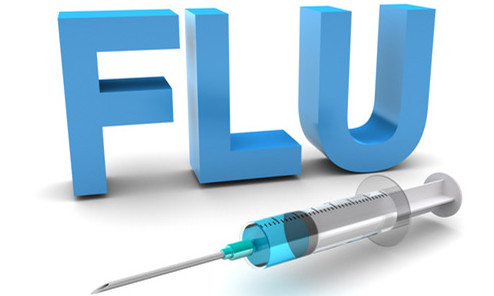Flu Vax May Improve Outcomes in Other Illnesses
November 2, 2017
Source: medpagetoday
 1,094
1,094

Even when the flu vaccine doesn't prevent disease, it can ease some of the consequences, researchers said here.
In a small single-center study, vaccinated patients admitted to hospital with the flu were significantly less likely to need mechanical ventilation and to suffer acute kidney injury, according to Twinkle Chandak, MBBS, of the Berkshire Medical Center in Lenox, Massachusetts.
And for several other adverse outcomes, there was a trend favoring vaccination, Chandak reported at CHEST, the annual meeting of the American College of Chest Physicians.
Chandak said most vaccine studies tend to look at how well the drug prevents disease, but in the case of seasonal vaccines protection is never complete, so it's important to know about critical disease outcomes in the presence or absence of vaccination.
But the findings are probably not completely unexpected for clinicians, commented CHEST session co-moderator Keith Wille, MD, of the University of Alabama at Birmingham.
"I think we feel that the vaccine helps," although it's nice to have data to support that suspicion, he told MedPage Today, adding that responses to the vaccine are known to be highly variable.
Chandak's group noted that the predominant circulating strain of influenza in the 2015-2016 flu season was the pandemic strain -- H1N1pdm09 -- that first emerged in 2009-2010 and has been part of seasonal vaccines every year since.
The investigators took advantage of that fact to evaluated outcomes among vaccinated and unvaccinated patients who were admitted to their 300-bed community teaching hospital from September 2015 through April 2016.
Chandak's group was interested in outcomes of H1N1pdm09 flu because during the pandemic season, the virus caused some 274,000 hospital admissions and 12,470 deaths in the U.S., according to CDC estimates, and preferentially affected younger people.
During that outbreak, 31% of patients were treated in intensive care and 11% died, she noted.
In 2015-2016, the hospital admitted 72 patients with flu confirmed by rapid polymerase chain reaction testing. Of those, 51 were shown to have disease caused by the H1N1pdm09 strain, even though 38 (76%) of them had been vaccinated, she told MedPage Today.
The analysis showed some significant differences, as well as trends that did not reach significance, in favor of vaccination, she said. Specifically, the risk of acute kidney injury was 35% in unvaccinated patients and 6% in the vaccinated, a difference that was highly significant.
Also, non-invasive ventilation was significantly higher the vaccinated group (41% and 6%), something that Chandak said was likely explained by the trend toward greater use of mechanical ventilation and multi-organ dysfunction syndrome among those who were not vaccinated (12% versus 6% for each).
ICU admission was 21% among the unvaccinated patients and 12% among those who got the shot, and they stayed 1.7 days on average versus 0.2 days, although the differences did not reach significance.
Some 44% of unvaccinated and 24% of vaccinated patients suffered from sepsis, although again, the difference was not significant.
On the other hand, in both groups, 6% of patients died and 12% went into shock and needed vasopressors.
Chandak cautioned that the study was small and the results need validation in larger patients populations.
Read more on
- Things to Know before Buying Newborn Baby Incubators March 31, 2022
- How are Vaccines Stored? December 6, 2020
- Why do Vaccines need to be Refrigerated? December 5, 2020
- BioNTech & InstaDeep launch AI innovation lab for next-generation vaccines and biopharmaceuticals November 28, 2020
- Moderna coronavirus vaccine shows ‘promising’ safety and immune response results in published Phase 1 study, but more research is needed July 15, 2020
your submission has already been received.
OK
Subscribe
Please enter a valid Email address!
Submit
The most relevant industry news & insight will be sent to you every two weeks.



